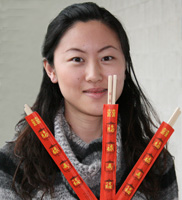In our show today we look at Geert Hofstede’s statement of “Culture as the Software of the Mind” and will try to explore that metaphor to the extreme. We will be asking ourselves how we get to learn about a piece of new software and whether this experience can really be transferred to learning about a new culture. What, for example, can be done in the classroom to raise the intercultural awareness of students who prepare for their stays abroad?
absolutely programmed:
In a round-table discussion with Berit Wiebe and Karsten Kneese we asked ourselves: “Where do we get our culture from? Do we get if from our parents like a new version of Photoshop for Christmas? Or do we get it from our peers like we would get new software if we illegally shared a programme with our friends? Or does the cultural learning rather work like the spell check in Word, which learns from us and improves because of the way we use it and add new items to it?
absolutely disturbing:
Audrey Fernandez-Diehl, who was born in Malaysia, studied in Australia and New Zealand, lived in Switzerland for a while and now teaches intercultural communication at university level in Germany tells us about her concept of culture, whether she thinks culture can be taught and about a very disturbing cultural game called Rufa Rufa. As Audrey teaches intercultural awareness, she says that her training is both, for foreign students who come to her university but also for her own students who prepare for going abroad.
absolutely grateful:
On this last day of Christmas I would like to say that Anne and I have enjoyed another year of being in intercultural contact with you, the listeners, through our show. We appreciate your response, please keep it coming. Now, if you have not made any new year’s resolutions yet, maybe you could share your thoughts about the shows a little more with the other listeners on this blog using the “comment”-function. This show has given Anne and me many opportunities for having conversations about intercultural topics with experts and ordinary people which otherwise we would probably not have had. So, the two of us would also like to thank you, the listeners, for keeping us going and looking at intercultural issues from different angles on a fortnightly basis.
The next show will be coming to you on 9 January from Anne Fox in Denmark.
So long…stay tuned!
The host of this show is: Dr. Laurent Borgmann
Editor: Jan Warnecke



